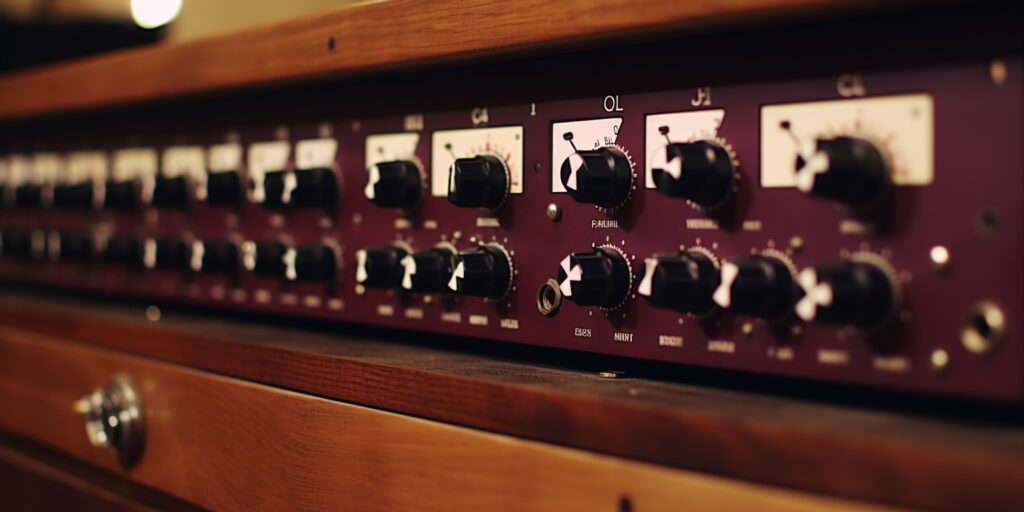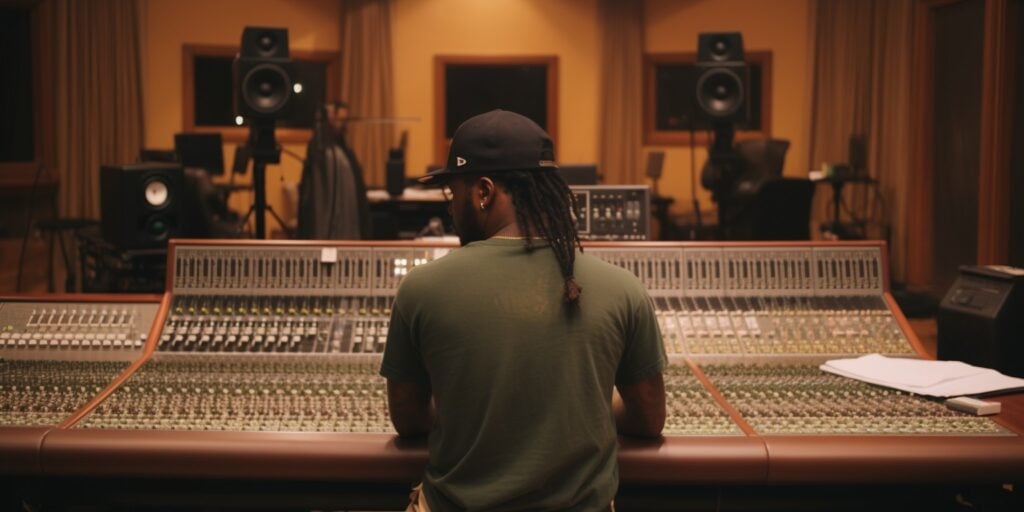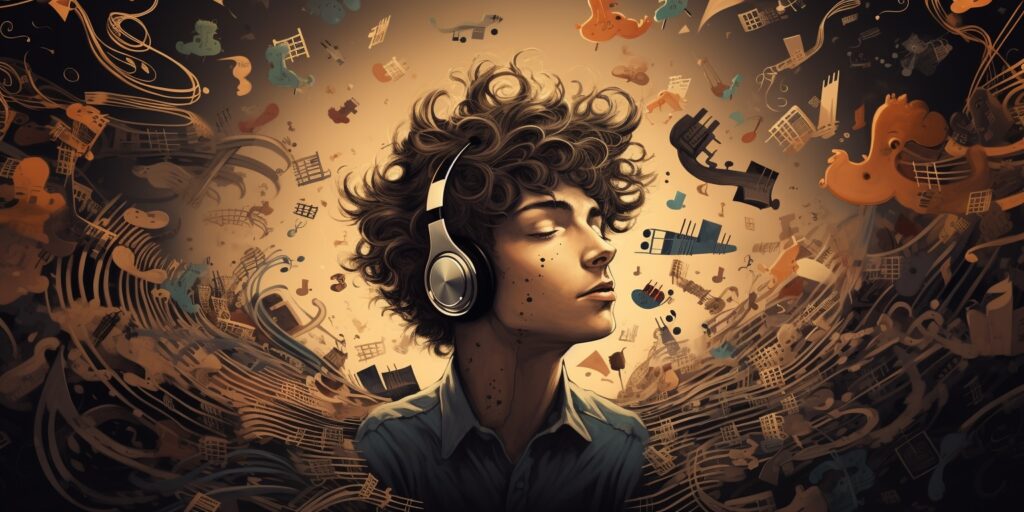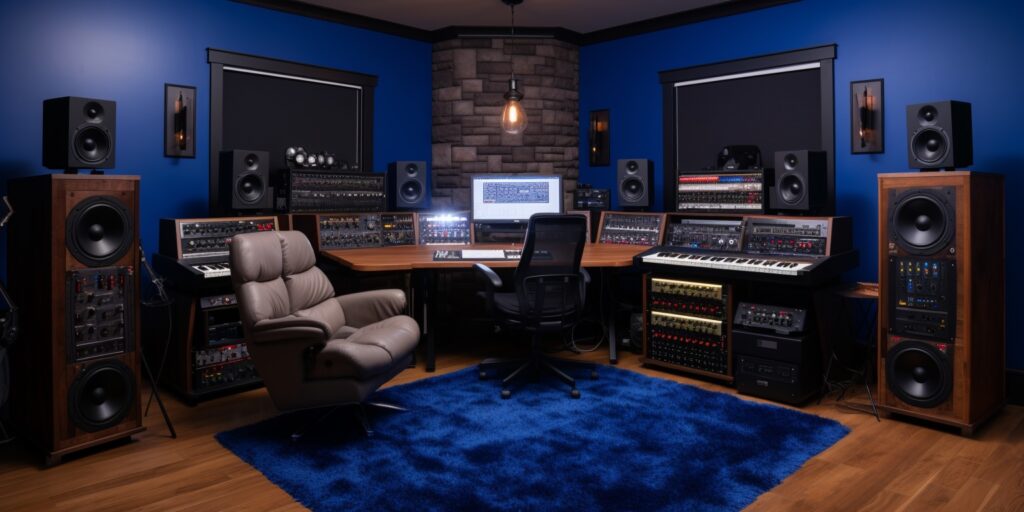6 Ways AI in Music Production is Hitting the Right Notes
Artificial intelligence is experiencing rapid adoption across various industries and the music industry is no different. In a recent survey, 60% of young creators reported already using artificial intelligence in their music production.
Outdated copyright laws are struggling to keep pace with these next-generation AI tools used to master mixes, provide stems for remixes, generate fresh ideas during songwriting sessions, and even create AI cover songs with a few clicks of a mouse.
While the ongoing debates around machine creativity and collaboration continue, creators are finding new ways to use existing AI tools to generate AI music videos and album art, offering a new way to connect with their fans over social media channels.
In this article, I’ll look at how artists and creators use AI tools in their workflows. ---
How are Creators Using AI in Music Production?
Creators are using AI tools to enhance productivity, inspire new ideas, and connect with fans in innovative ways.
Here are the 6 main ways creators are using AI in music production:

- 1. Production, Mixing, and Mastering
- 2. Synthetic Voices
- 3. Stems Separation
- 4. Dynamic Music
- 5. Concept Songs
- 6. Music Videos
1. Production, Mixing, and Mastering
Ever since AI tools started becoming widely accessible, they’ve repeatedly impressed us with their ability to automate tedious tasks and aid in human creativity.
Until recent years, if you wanted to produce professional music you’d need to spend years learning your instrument, collaborating with like-minded artists, and spending big on the recording process.
Nowadays? You can create an entire album in your bedroom with not much more than a good internet connection.
While some are worried that AI may overshadow human creation, the technology used now predominantly serves as a collaborative tool for artists.
AI is allowing for the automation of complex tasks in music production that previously took time and a decent understanding of theory and technology.

Another area where creators are using AI in music production is mixing and mastering.
For upcoming artists who might not have access to the resources required for proper mixing and mastering, this means quicker and more accessible routes to polished tracks.
Artificial intelligence excels at mixing and mastering because AI algorithms can rapidly analyze and adjust multiple audio elements for optimal balance and quality, thereby streamlining the post-production process.
While AI mixing and mastering is still an emerging trend in the music business, you can see how these AI-powered tools, often easily accessible from your computer, might become the norm for creators.
2. Synthetic Voices
AI-generated music often features artists who have passed away or aren’t making music anymore thanks to synthetic voices.
Synthetic voices allow creators to emulate the vocal qualities of artists providing a way to produce new compositions and cover songs that sound exactly like the artist’s original style.
Using machine learning models trained on a library of the artist’s vocals, synthetic voices can generate vocals and melodies that are remarkably similar to the artist’s unique sound.
Synthetic voices are bound to play a major part as AI continues to be used to create music. Creators are often looking to have some fun, and the major record labels will soon be looking to cash in.
3. Stems Separation
Stem separation is a process in audio engineering where existing music is deconstructed into its individual elements or ‘stems,’ such as vocals, drums, bass, and other elements.
Artificial intelligence algorithms can automate this stem separation process with high accuracy, keeping the original quality of the music created.
Once separated, each stem can be independently worked on for modifying, restoring, or enhancing the track. Interstingly, one noteworthy example was the use of stems to create ‘the Final Beatles song‘.
This application of AI in the music business is handy for things like vocal isolation, instrumental creation, and generating cover songs, providing a powerful tool for both amateur musicians and professionals in the music business.
4. Dynamic Music

Dynamic music is music that can adapt and change in real time based on various inputs and conditions.
Dynamic music is another emerging trend in AI-generated music that combines artificial intelligence tech with music to create soundtracks that morph to suit the environment, user actions, emotions, etc.
Dynamic music has a wide range of applications such as video games, virtual reality, interactive art, advertising, study music, and many, many more… imagine having your own soundtrack playing based on your current activity.
Dynamic music provides an immersive, adaptive musical environment by using technology to make certain compositions respond in real-time based on changing contexts and it’s just another way generative AI is impacting the music industry.
5. Concept Songs
An emerging trend songwriters are using in the creative process is the creation and use of concept songs.
Human musicians are combining their own music with that of popular artists using synthetic voice technology and AI tools to create concept songs in the hope of collaboration.
While it’s common practice for artists to hire demo singers and record their pitch demos, the adoption of AI is still a relatively new concept for most.
Alongside this, human songwriters use concept songs to generate interest from band members or record labels.
With the help of AI, songs can be created significantly easier than ever before allowing artists to pitch concept songs to other artists and band members quickly.
6. Music Videos
AI music videos are just another way musicians and creators are leveraging AI in their workflows.
AI music video generators are still a relatively new tool that are producing some amazing results. By using AI image generators mixed with other AI audio tech, these tools can separate individual stems and generate visuals to suit the instrument of your choice.
The implications of this are obvious! Save massive amounts of time, effort, and money, while capitalizing on a trending piece of technology is a no-brainer looking for anyone trying be improve their engagement.
AI music videos and music video generators are still well and truly in their infancy, but considering how popular these early creations are, we’re bound to be seeing a lot more AI-generated visual content in the music world.
The Future of AI in Music Production

Considering how relatively new these artificial intelligence technologies are, the future for AI in the music industry is looking pretty bright.
-
Creativity: AI will continue to be used to create new music that sounds similar to existing popular music and artists. This could lead to an influx of AI-generated music on streaming platforms, and it’s likely we’ll see some viral songs generated entirely by AI very soon.
-
Adoption: The music community will likely be divided on the role AI should play. Some will embrace it as a tool, while others will see it as a threat to human creativity. There will likely be ongoing debates until AI finds its place in the industry.
-
Algorithms: Streaming services will continue using AI to analyze user data and generate personalized playlists and recommendations. This helps users discover new artists and songs tailored to their tastes.
-
Analytics: Streaming platforms may also use AI for predictive analytics – anticipating future music trends and success. This could influence the type of music promoted on streaming services.
-
Industry: We might even see the rise of AI record labels that manage fully AI-generated artists and music.
-
Copyright: No article on AI music would be complete without mention of copyright. AI in music has an interesting battle ahead regarding copyright and how existing music is used by machine learning to create other songs.
In my personal opinion, I don’t think AI will ever replace human artists but like so many other AI tools, it will complement and enhance human creativity.
The best AI songs and creations will likely be transparent collaborations between AI tools and human artists working together in the creative process to make something great!
Wrapping Up
Today was a brief overview of emerging trends of AI in music production.
Independent creators are looking to AI more and more as these tools become more powerful and accessible within the music industry.
AI music still has some battles ahead, especially regarding the tricky copyright situation and human adoption.
Either way, I think the future is very bright for AI tools in the music industry, as well as the creators who choose to use them.
Catch-ya! 👋
